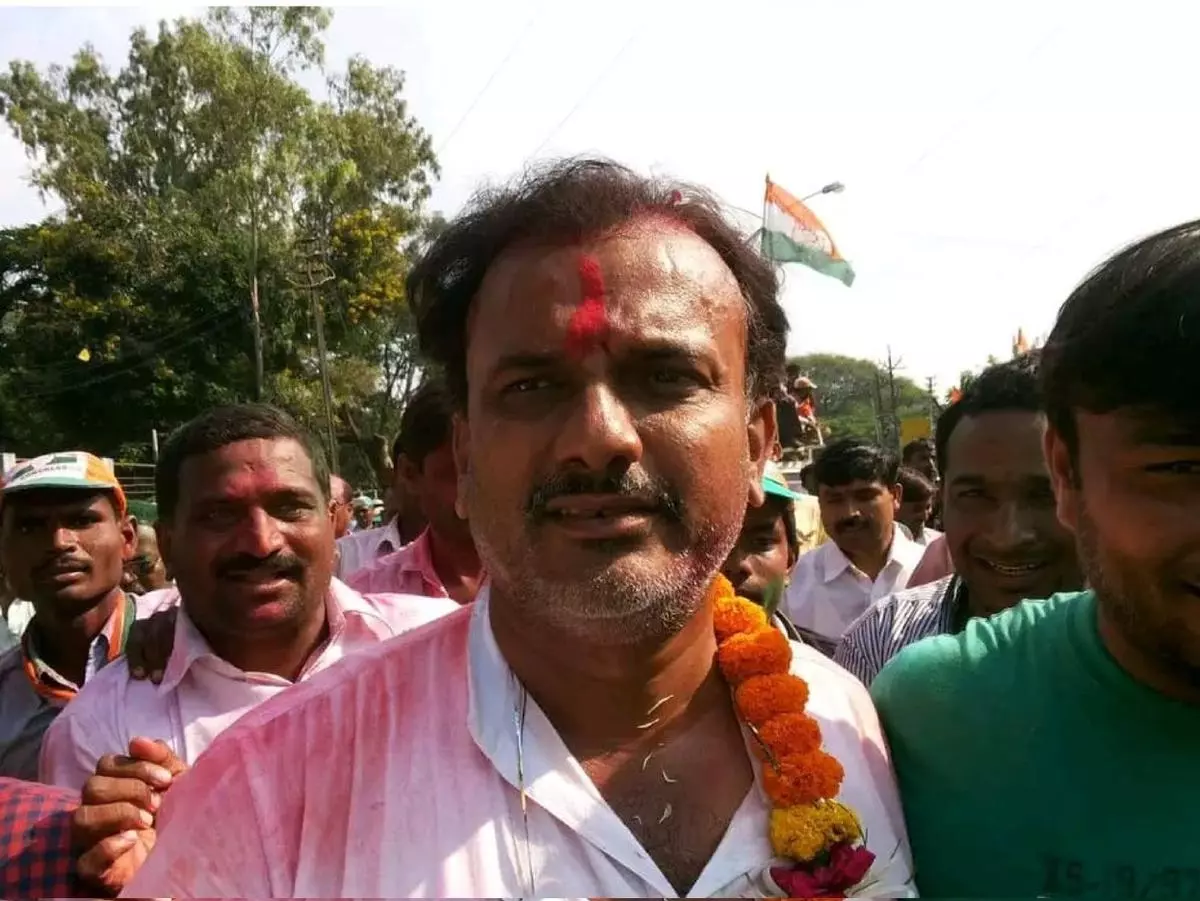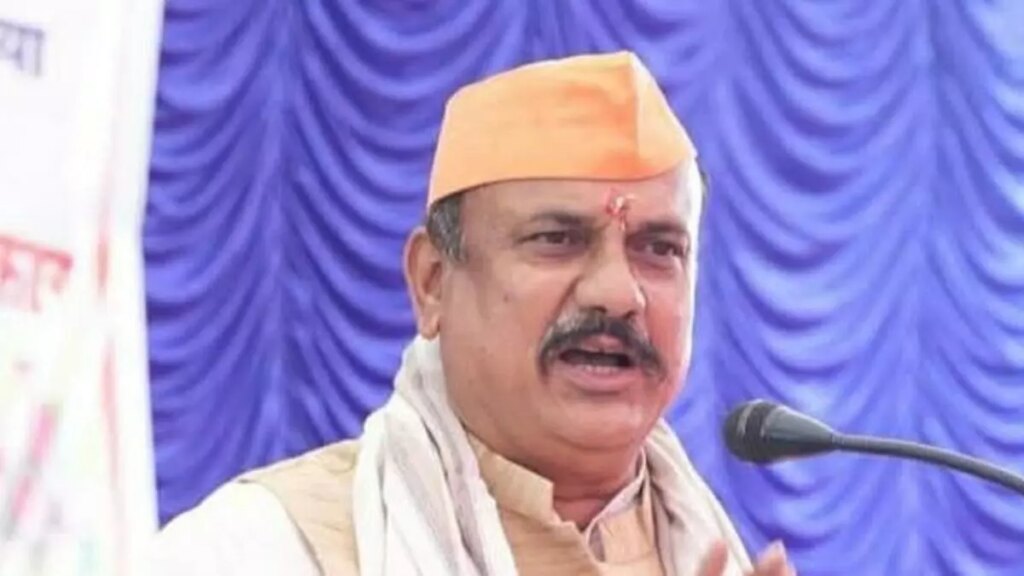Maharashtra’s sociopolitical circles were taken by surprise when former MLA Harshwardhan Sapkal was announced as the State Congress president. As expected, reactions were extreme from all sides. Sapkal is a relatively lesser-known figure in State politics, and many staunch Congress supporters on social media expressed frustration, having expected a heavyweight politician. Some even publicly criticised the appointment.
However, civil society and a broad spectrum of social activists spontaneously welcomed the new State Congress president, finding his appointment a pleasant surprise. Political corridors were equally astonished to witness such enthusiastic support from civil society for a political appointment. The initial reactions indicate that the Congress leadership has successfully generated a buzz with Sapkal at the helm.
Harshwardhan Sapkal’s background is a key factor behind this buzz. At 57, he does not fit the mould of a traditional politician. He comes from a non-political family; his parents were government employees, making him a self-made leader. During his college years, he played kabaddi at the State level and was well-known in his native region of Vidarbha.
During this time, he came into contact with the Congress’ student wing, the National Students’ Union of India, though he did not join the organisation then. Instead, he focussed on social work in the tribal belt of his home district, Buldhana, visiting tribal settlements to promote health and education awareness.
This work connected him with veteran social activists from Vidarbha, a region with deep Gandhian roots. Mahatma Gandhi had established his ashram in Wardha, and his disciple Vinoba Bhave had an ashram in Pavnar, creating a strong network of Gandhian activists. Sapkal became involved with many of them and was drawn to Bhave’s Sarvodaya (welfare for all) philosophy. This association led him to the Sarvodaya Mandal, which had a presence across Maharashtra, and he frequently travelled to Pune and Mumbai for social activities.
Also Read | MVA in shambles with Maharashtra local body elections round the corner
During one such visit, Sapkal met Narendra Dabholkar, the renowned anti-superstition activist who was assassinated in 2013. He recognised the significance of Dabholkar’s work, as superstition was a major obstacle to the progress of marginalised communities. Kabaddi was another common link between them—both had played at the State level, with Dabholkar receiving Maharashtra’s highest State-level sports award for kabaddi.
Over time, Harshwardhan realised the necessity of politics as a tool for societal change. He formally entered the Congress in the 1990s. His political journey began as the sarpanch of his village, and within a year, he was elected to the zilla parishad (district council). At the time, the Congress’ current general secretary, Mukul Wasnik, was an MP from Buldhana. Recognising Sapkal’s potential, Wasnik made him chairman of the zilla parishad, making him the youngest to hold the post at just 27 years old.
Transformative leadership and political struggles
From 1999 to 2002, Sapkal’s tenure as Chairman of the Buldhana Zilla Parishad proved transformative. He focussed on reforming the primary education system. In Maharashtra, government primary schools in rural areas fall under the zilla parishad’s jurisdiction. Sapkal not only improved infrastructure but also enhanced the quality of teaching and students’ overall development. His work received recognition at both the State and national levels.
But from 2002 to 2014, Sapkal faced political struggles. In 2009, he contested the Buldhana Assembly constituency but lost. By the late 1990s, Buldhana had begun shifting towards the Shiv Sena, and the Shiv Sena-BJP alliance gained traction. Gandhian ideology was waning, but Sapkal remained active in his constituency. Finally, in 2014, amid a BJP wave in Maharashtra, he surprised many by winning his seat.

Harshwardhan Sapkal after his victory from the Buldhana seat in the 2014 Maharashtra Assembly election.
| Photo Credit:
X/Harshwardhan Sapkal
By then, the Congress had lost power in the State. Harshwardhan Sapkal distinguished himself as a serious and studious MLA. In 2019, he was courted by the BJP but declined their offers. His ideological commitment earned him greater responsibilities within the Congress, connecting him with leaders like Meenakshi Natarajan, a staunch Congress loyalist. He took on several intra-party roles across the country. But this shift in focus distanced him from his constituency, leading to his defeat in the 2019 Assembly election.
Following this loss, Sapkal redirected his efforts toward the national-level party organisation. Natarajan had been handling the Congress’ internal training initiative, the Rajiv Gandhi Panchayati Raj Samiti (RGPRS), which educates and trains elected local body representatives. The RGPRS focusses on the role of local governance in democracy. Sapkal became involved in these training programmes, helping expand the RGPRS across India over the past five years by engaging grassroots workers in both developmental and ideological work.
Parallelly, Congress leader Rahul Gandhi launched a training initiative called SANGAM, focussed on educating people about constitutional values in daily life and politics. Led by the Congress’ training department under Sachin Rao, another close associate of Rahul Gandhi, SANGAM gained prominence. Sapkal became an integral part of this initiative, overseeing training efforts. His appointment as Maharashtra Congress chief is widely attributed to his association with this inner circle of Rahul Gandhi.
Escalation of ideological battle
With Sapkal’s appointment, the Congress has sent a clear message about its intent to escalate its ideological battle against the BJP. The political scientist Suhas Palshikar has noted that “Maharashtra was Congress’s last fortress,” which has weakened due to two factors: the party’s loss of ideological direction over decades and the decline of the cooperative economy, once the backbone of its structure. Reviving the party requires a two-pronged strategy: realigning it with its ideological roots and adapting to Maharashtra’s evolving economic landscape. Sapkal’s appointment marks the first step in this direction.
But Sapkal must also adapt to Maharashtra’s contemporary political dynamics. In the 2024 Lok Sabha election, the Congress won 13 seats, plus one from an independent it supported, making it the largest party from the State in terms of Lok Sabha MPs. Yet, within five months, in the Assembly election, the Congress managed to win only 16 seats, slipping to fifth place—a shocking decline. Reviving the party is now Sapkal’s challenge.
“I don’t want to be an MLC, Rajya Sabha MP, or Chief Minister. My goal is to make the next CM from Congress. So, I am not in competition with any of the senior State Congress leaders.”Harshwardhan SapkalMaharashtra Pradesh Congress chief
One of his biggest hurdles will be co-ordinating with Maharashtra’s heavyweight Congress leaders. Unlike many of them, he does not own sugar mills, educational institutions, dairies, or other major financial assets. He also lacks familial ties with political dynasties. His wife remains an assistant professor at a college in Buldhana. As a leader from a middle-class background, he must unify the party’s bigwigs. When asked how he plans to do so, Sapkal told Frontline: “I don’t want to be an MLC, Rajya Sabha MP, or Chief Minister. My goal is to make the next CM from Congress. So, I am not in competition with any of the senior State Congress leaders.”
This statement is an indication of Sapkal’s political astuteness as he takes charge as the Pradesh Congress Committee chief. But the real work lies ahead. With 48 months until the next Lok Sabha election, he must mobilise party workers across one lakh voting booths, ensuring they are well-trained and prepared. The Congress must expand its voter appeal beyond traditional bases such as Scheduled Castes, minorities, and rural feudal families.
Rediscovering the ‘killer instinct’
For over 50 years, the Maharashtra Congress was in power, dominated by feudal families that never learnt the art of being in the opposition. More importantly, they have lost the “killer instinct” necessary to counter today’s BJP. Harshwardhan Sapkal must either reinvigorate this instinct within the party or sideline feudal elements from the ground battle.
Transforming the Congress’ image in Maharashtra will be another tough task. The party of the establishment must now rebrand itself as the party of the common people. To achieve this, Sapkal must integrate social activists into the party structure and align their efforts with grassroots workers. Following the Assembly election defeat, party workers are disillusioned. Rebuilding their confidence and reconnecting them with people’s causes is his real challenge.
Also Read | Something is rotten in the state of Maharashtra
After assuming office as State Congress chief, Sapkal made his first visit to Mumbai on February 17. Typically, such visits are marked by citywide hoardings welcoming the new president. But this was not the case for him. Instead, he stayed at the Sarvodaya Mandal’s office, where he has always resided—a modest dormitory in South Mumbai, where Vinoba Bhave once stayed. Accompanied by his wife and son, his simple lifestyle starkly contrasted with Congress leaders accustomed to five-star hotels and luxury cars. His brand of Gandhian simplicity may seem utopian in today’s political climate, but it remains his hallmark. When Frontline asked him whether it would work in modern politics, he replied: “Gandhiji once said, ‘When you face a problem, go to the roots.’ I am at my roots. We are starting from scratch now.”
Indeed, leading the Maharashtra Congress now requires a complete overhaul—and Harshwardhan Sapkal is at the forefront of this mission.
Source:https://frontline.thehindu.com/politics/harshwardhan-sapkal-profile-maharashtra-congress-president-impact-grassroots-approach-background-ideology/article69233197.ece

